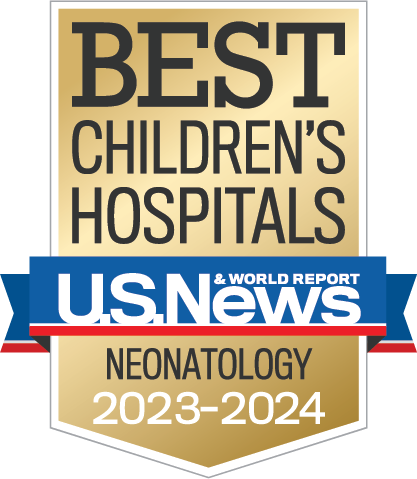- Doctors & Departments
-
Conditions & Advice
- Overview
- Conditions and Symptoms
- Symptom Checker
- Parent Resources
- The Connection Journey
- Calm A Crying Baby
- Sports Articles
- Dosage Tables
- Baby Guide
-
Your Visit
- Overview
- Prepare for Your Visit
- Your Overnight Stay
- Send a Cheer Card
- Family and Patient Resources
- Patient Cost Estimate
- Insurance and Financial Resources
- Online Bill Pay
- Medical Records
- Policies and Procedures
- We Ask Because We Care
Click to find the locations nearest youFind locations by region
See all locations -
Community
- Overview
- Addressing the Youth Mental Health Crisis
- Calendar of Events
- Child Health Advocacy
- Community Health
- Community Partners
- Corporate Relations
- Global Health
- Patient Advocacy
- Patient Stories
- Pediatric Affiliations
- Support Children’s Colorado
- Specialty Outreach Clinics
Your Support Matters
Upcoming Events
Mental Health Town Hall
Tuesday, April 23, 2024Join Children’s Hospital Colorado pediatric experts for a virtual...
-
Research & Innovation
- Overview
- Clinical Trials
- Q: Pediatric Health Advances
- Discoveries and Milestones
- Training and Internships
- Academic Affiliation
- Investigator Resources
- Funding Opportunities
- Center For Innovation
- Support Our Research
- Research Areas

It starts with a Q:
For the latest cutting-edge research, innovative collaborations and remarkable discoveries in child health, read stories from across all our areas of study in Q: Advances and Answers in Pediatric Health.


How to Advocate for Your Baby in the NICU
Our pioneering neonatal program treats the smallest patients at their most vulnerable, achieving the outcomes that affect the rest of their lives.

As a parent, you will always be the voice for your baby, but never more so than before they’re born or when they’re facing a serious medical condition in infancy. During this time, you take on the additional role as your baby’s primary health advocate.

You will come to know your baby, their habits and needs better than anyone. That’s why it’s so important to create a baby care plan before birth. In the event that your child needs care in the neonatal intensive care unit (NICU), your care plan will help you feel empowered to speak up for your baby.
At Children’s Hospital Colorado, we value you as partners in your baby’s care. We want you to know that your intuition is more than valid and that your wishes and goals guide our care plan for your baby. While we are neonatology experts, you are your baby’s expert.
Your steps to empowerment
For parents, being in the NICU might feel a little intimidating. You will interact with many caregivers and receive a lot of information about your baby. You might feel like you don’t have the medical knowledge to ask questions or are afraid to speak up. We encourage you to push past this feeling and do what feels right for your newborn.
Educate yourself
You don’t need to become a full-fledged NICU expert — that’s why we’re here. But learning some basics about NICUs and your baby’s condition can help you feel much more confident when advocating for your child. Here are some of the areas you can educate yourself on if you think your baby will need a higher level of care:
- NICU levels: The American Academy of Pediatrics designates NICUs Level I through IV based on capability and the babies they can care for, with Level IV NICUs offering the highest level of care. Our NICU on Anschutz Medical Campus in Aurora is designated Level IV and our NICU at our Colorado Springs hospital is designated Level III.
- Is your baby’s care team local? If your baby has a critical injury or illness, timely care by a neonatal expert matters. Ask if experts such as fetal and pediatric surgeons, neonatologists and other pediatric subspecialists work at the hospital where you will be delivering. When a NICU has all the necessary pediatric specialists on-site, your baby won’t be transferred for a higher level of care, meaning less stress on your family during an already stressful time.
- Is your baby’s care team trained in neonatal care? If your baby needs critical care, you want the most qualified experts to care for them. In the best NICUs, all caregivers have specific training in caring for newborns — from nurses and neonatal nurse practitioners to pharmacists, dietitians and therapists.
- How do you treat heart conditions? Babies in the NICU often have heart conditions or complications. If your baby needs heart care, it’s important that your NICU performs specialized pediatric heart tests and treatments, such as pediatric electrocardiogram and ECMO. It’s also important that pediatric heart specialists are on-site or on-call 24/7. Learn more about our nationally ranked Heart Institute, which our NICU works with every day to share expertise and ensure the best outcome for your baby.
- Prepare for your visit: Visit any NICU you are considering and ask a lot of questions about what to expect from your time in the NICU.
- Learn how to choose a fetal care center: If your baby has a prenatal diagnosis that requires care before, during and after delivery, it’s very important that you deliver at a center that is experienced in caring for complex fetal conditions, such as our Colorado Fetal Care Center. Learn what to look for and what questions you should ask.
Ask questions
If a question comes to your mind, ask your care team about it. Trust your intuition. When it comes to your baby, no question is too trivial to ask and your care team should encourage questions. Below are some different topics you might want to ask about, but each family is unique:
- If you have a prenatal diagnosis, ask your maternal fetal medicine doctor (MFM) about care, treatment and everything related to delivering your baby, including care for your baby after they are born. Different hospitals have different capabilities and you will want to deliver your baby at a hospital with a reputable NICU staffed by expert neonatologists, neonatal nurse practitioners and other neonatal experts.
- Ask your MFM doctor who they work with in different NICUs. Your doctor likely works with NICUs often and has a good sense of their capabilities. If you trust your MFM specialist, they can provide you with an honest assessment of where you should seek care.
- If you are in the NICU, ask your baby’s care team any questions you have. Many different providers will care for you in the NICU and you should feel comfortable enough to ask anyone questions. In our NICU, you will have a primary nurse team who stays with you throughout your stay. They will often be the first caregivers you go to with questions, and this team will get to know your family best.
- Ask about procedures. Make sure you are comfortable and informed about the process, details and recovery.
- Understand the equipment in the NICU. There’s a lot of equipment involved in your baby’s care. You don’t have to know how to use it, but a general understanding of what is beeping and why can make you feel more comfortable.
Seek a second opinion
If your baby has a prenatal diagnosis, you should gather as much information as possible so you know all your options. As long as you’re not in an emergency, you should feel empowered to seek another viewpoint from your primary doctors if you’re at all uncertain. This can help you confirm what your doctor is suggesting or provide other options. If you need a second opinion on your care options reach out to another MFM doctor, but also try to connect with other moms whose babies have the same condition as yours or support groups related to the condition.
Make your wishes known
Remember that you are a partner in your baby’s care. Your goals and preferences for your baby guide our recommendations. Make sure that you express those goals so we can help you reach them.
- Have meaningful discussions with your family. Before you communicate with your care team, talk with your partner and other important family members to make sure you are on the same page.
- Create a Baby Care Plan. You plan every step of your baby’s birth from your “go bag” to their first outfit. Make sure you have a plan in place and location designated should your baby need a higher level of care.
- Be prepared to make difficult decisions. Having a baby in the NICU can involve decisions you never thought about or don’t want to make; however, your involvement is crucial. Ask questions of your care team so you fully understand the implications of any difficult decisions. Our palliative care and psychology and social work teams are also here to help you navigate new and difficult situations.
Be assertive
The NICU is probably a new environment for your family and it might feel like a whirlwind at times. But everyone involved has the same goal: to help your baby be as healthy as possible. If you have a thought, feeling or question about your baby’s care, no matter what it is, let your care team know. Trust your intuition and make sure you feel heard. Don’t be afraid to say “no” if something doesn’t feel right to you.
Take care of your baby, and yourself
Don’t forget that you are your baby’s most important caregiver. If you are not feeling well, it is going to be harder to help your baby be as healthy as possible. Even when you are in the NICU, try to maintain some life balance. Trust that we will care for your baby like they are our own and that you can leave the hospital for some personal time. Sleep in your home when it works for your schedule, take walks and do things for your own enjoyment.
Also, keep in mind that our experts are not here just to keep your baby healthy. We have an extensive Mental Health and Social Work Program to help you with issues ranging from postpartum depression to adjusting to the NICU to decision-making and more.
Find community
You are not alone. While some members of your care team will start to feel like family, you can also find other families who have been through a similar situation. You can find a supportive community through associations, parent groups and condition-specific support groups — both online and offline. Ask your care team for recommendations or research different groups online.
Feel prepared to go home
Taking your baby home is one of the most joyous days you will have with your baby — it can also make you nervous. Ask as many questions as you need to feel comfortable going home.
Many babies in our NICU need ongoing care, either at home with you or in specialty clinics for their particular condition. Make sure you feel prepared to give care, coordinate their follow-up appointments and seek help when you have questions. Our team will help you feel comfortable with any equipment you need to take home and with any special needs your baby has.
Registered pediatric nurses staff our Children's Colorado ParentSmart Healthline™ around the clock to answer your questions.
Advocating for your baby doesn’t stop when you go home. You should feel empowered to apply all the advice above to any care your baby receives, including all follow-up care. Below are some of the common clinics or departments your baby might visit as they grow, although we have dozens of specialty clinics to care for your child’s individual needs:



 720-777-0123
720-777-0123





